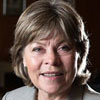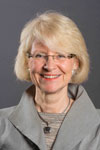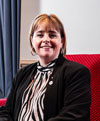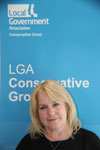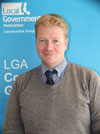The LGA Conservative Group produces an annual report so that Conservative councillors are kept informed about our activities and the wider work of the corporate LGA. We hope that you will find this publication, which covers the 2020/2021 LGA year and includes reports from our senior members, to be useful.
The Rt Hon Robert Jenrick MP – Secretary of State for Housing, Communities and Local Government
In what has been a year filled with unique challenges, Local Government Association (LGA) Conservatives can be very proud of their vital work and achievements supporting communities across all corners of the country.
In May, the country went to vote and delivered a historic set of local results. From Northumberland to Cornwall, from Southampton to Dudley, we have a one nation Conservative Party leading and delivering – in some areas for the first time in a generation.
I have met with and congratulated our new leaders, and have been impressed by their vision and drive, with clear, concrete plans to deliver the priorities of local people.
As we cautiously reopen the economy and return to normality, we are ready to grasp the economic boost that comes from going out and supporting local businesses – from returning to our favourite pubs, restaurants and cafes, providing our local economies with the love and support they need as we continue down the recovery roadmap.
Councils have been central to this mission, providing business grants and support, and have been looked to for their strong leadership.
One of the greatest divides in our country, and one that has been thrown into sharp relief by the pandemic, is between those who own a home of their own and those who do not.
That is why I was delighted to be in Bolsover recently to see the very first site of our new First Homes scheme, providing new homes for first-time buyers at a 30 per cent discount.
We are determined to do everything we can to help hard-working families and prospective first-time buyers get their feet on the housing ladder in an easy and affordable way, with a range of new flexible ownership and financing options – including our new 95 per cent mortgage guarantee scheme.
Our planning reforms – sensible, pragmatic improvements that will make the planning system more effective and bring it into the modern era – for councils will mean more certainty and transparency, better engagement, and more funding for vital local infrastructure, with enhanced environmental protections and a commitment to protect our Green Belt.
We can be very proud of what we have achieved together across a range of areas.
For instance, our shared commitment to supporting the vulnerable during this pandemic has been unwavering.
Our most recent snapshot data shows that since Boris Johnson became Prime Minister, rough sleeping has almost halved – and we are working closely with partners in all councils to end rough sleeping through landmark housing investments.
Thank you to everyone who has worked tirelessly to make this happen.
A key theme of our support is an agenda of localism – that to level up the country we must work collaboratively to ensure that pride and placemaking are the cornerstone of communities.
That is why growth is to be shared inclusively and equally, across all nations and all regions, with our landmark new Levelling Up Fund, Community Renewal Fund and Community Ownership Funds to bring about a once in a generation transformation – particularly to the reimagining of urban centres. Three extensive UK wide funds that will extend hope and material improvements far and wide.
Looking to the future, it’s a privilege to be working alongside you – who are amongst our most committed and important public servants – to make a difference and level up the country as we build back better.
Introduction from Councillor James Jamieson and Councillor Izzi Seccombe OBE
Welcome to our LGA Conservative Group Annual Report for 2020/2021. We are delighted to update you, our Conservative councillor colleagues from LGA member councils, on our work over the past year and our plans for the next twelve months.
The overriding context for this report is of course the extraordinary impact that coronavirus has had on us all.
At every stage of the pandemic we have seen the very best of local government demonstrated every day as councils across the country have protected residents and businesses whilst keeping key services running as smoothly as possible.
Councils got the homeless into safe accommodation, successfully delivered local test and trace schemes and outbreak management, helped local businesses to access a range of emergency grants, and supported the vaccination rollout, to give just a few examples.
All of this took place while you carried on delivering ‘everyday’ tasks such as getting more homes built and shaping communities, providing care and support to older and vulnerable residents, supporting children and young people, and emptying the bins.
We are both hugely proud to have worked alongside you. The country as a whole and the individual communities that you serve are lucky to have local leaders, councillors and dedicated council staff who have gone the extra mile and beyond throughout this crisis.
The performance of Conservative councils and councillors during the pandemic received a ringing endorsement at the May local election when we recorded a net gain of 235 councillors and 13 councils, thus consolidating our position as the largest party in local government, and also as the largest group at the LGA.
We would like to congratulate all of you who were re-elected or newly elected in May, and we look forward to working with you over the coming year.
Whilst the results overall were very positive, we were sorry to lose a number of councillors who were involved with the LGA, including Ian Hudspeth, the Chairman of the Community Wellbeing Board, and David Williams, the Chairman of the County Councils’ Network (CCN).
We would like to place on record our thanks to Ian and David for their work at the LGA, and our commiserations to everyone else who lost their seats, and to wish them all the very best for the future.
Elsewhere in this report, the summaries from our lead members on the LGA’s various policy Boards outline the work that has taken place over the past year both in response to COVID and more strategically, and we hope that you find these useful and informative.
As the UK hopefully moves towards the end of the pandemic, our focus will increasingly turn to those issues that you previously highlighted as being the most important to you and your communities: putting adult social care on a sustainable long-term footing, building new homes, devolution, improving the lives of children, and ‘levelling up,’ to name just a few.
Making progress on these and other important issues will depend on maintaining good relationships with Government ministers, and we are pleased that over the past year we have continued to have weekly meetings when Parliament is sitting with our Secretary of State, Robert Jenrick, his MHCLG ministerial colleagues and, when a topic is being discussed which impacts on local government but which does not come under the direct remit of MHCLG, relevant ministers from a range of other departments.
Also attending these meetings are Councillor John Fuller (LGA Conservative Group Deputy Leader and Chairman of the District Councils’ Network), Councillor David Fothergill (interim Chairman of the CCN from May 2021 in place of David Williams), Councillor Teresa O’Neill (Conservative Group Leader at London Councils) and Councillor Mark Hawthorne (Chairman of the Conservative Councillors’ Association).
These meetings have proved to be particularly useful during the pandemic as they have allowed us to raise issues of immediate importance as well as having more strategic discussions. We are extremely grateful to Robert, his MHCLG colleagues and the ministers from other departments who have taken time out of their busy scheduled to meet with us.
In addition to this annual report we regularly communicate with you in various other ways throughout the year, including our email bulletins which aim to update you on key policy announcements, lobbying activity and forthcoming events.
The frequency of these bulletins increased during the pandemic, and we hope that you have found them useful. If you have any suggestions for changes that you would like to see made to the bulletins please do email [email protected]
We are also on Twitter, so please do follow us at @LGACons for all the very latest news and views from the LGA and the Conservative Group.
Over the course of the past year we have held a number of webinars for Conservative councillors on topical issues that were addressed by senior politicians, including on the future of social care (Matt Hancock), Housing and Planning (Chris Pincher), the vaccine rollout (Nadhim Zahawi) and also Amanda Milling, the Conservative Party Co-Chairman.
These webinars, which have received very positive feedback from those who attended, have allowed us to engage with many more councillors than previously, and whilst many of us are looking forward to returning to meeting in person we are keen to retain some of the benefits of the technology that we have all become accustomed to.
The LGA tries to be as accessible as possible to all members and its regular Councillors’ Forum meetings are open to all councillors from member authorities who wish to attend.
The Councillors’ Forum is often attended by ministers, and over the past year we have welcomed Robert Jenrick and Matt Hancock as well as a range of other leading speakers to these meetings.
The Conservative Group meeting beforehand offers an ideal opportunity for us to discuss key issues in a private political setting, and we are often joined by the minister who will be speaking at the Councillors’ Forum as well as other Parliamentarians, staff from CCHQ, etc.
Details about forthcoming Councillors’ Forum meeting are included in our monthly bulletin. If you wish to attend please email the group office at [email protected]
We would like to finish by once again thanking you for all that you have done for your communities throughout the pandemic.
As we embark on what is hopefully now a return to normal life, we and our colleagues at the LGA are looking forward to meeting many of you over the course of the coming year as we hopefully return to in-person rather than virtual conferences, meetings and conversations.
LGA Conservative Group Executive – 2020/2021
The LGA Conservative Group Executive oversees and directs the work of the Conservative Group at the LGA. The members of the Executive for 2020/2021 were:
LGA Chairman – Councillor James Jamieson (Central Bedfordshire Council)
Conservative Group Leader – Councillor Izzi Seccombe OBE (Warwickshire County Council)
Conservative Group Deputy Group Leader – Councillor John Fuller OBE (South Norfolk District Council)
County Council Executive Member – Councillor Nick Rushton (Leicestershire County Council) (until May 2021)
Non-Met District Council Executive Member – Councillor Linda Robinson (Wychavon District Council)
London Borough Council Executive Member – Councillor Teresa O'Neill OBE (London Borough of Bexley)
Metropolitan Council Executive Member – Councillor John Pennington (Bradford Metropolitan District Council) (until May 2021)
Unitary Council Executive Member – Councillor Paul Bettison OBE (Bracknell Forest Council)
'At Large' Executive Members (four positions)
Councillor Philip Atkins OBE (Staffordshire County Council)
Councillor Kevin Bentley (Essex County Council)
Councillor Rory Love OBE (Kent County Council)
Councillor Colin Noble (Suffolk County Council)
Ex officio – Chairman of the Conservative Councillors’ Association, Councillor Mark Hawthorne MBE (Gloucestershire County Council)
LGA policy boards
The LGA is a politically-led organisation, and the members who are appointed to serve on its policy boards are responsible for developing its lobbying and policy formulation activities in relation to the various local government services covered by each of the boards.
The LGA’s political groups make annual appointments to the boards. The number of places and lead member positions (Chairman, Vice Chairman and Deputy Chairman) that they have to allocate are determined by the LGA’s proportionality figures which are calculated every May following the local elections.
The following summaries from our Conservative lead members outline the work that they and their colleagues have undertaken on your behalf over the past year.
We hope that you find these summaries to be useful. More detailed information on each board, including a list of all the Conservative representatives who serve on them, is available on the LGA website or via the Conservative Group office.
Councillors are appointed to serve on these boards annually. Nomination forms are sent to Conservative group leaders in June, the appointments are made in July and take effect at the start of the new LGA year on the 1 September.
Each Conservative council group leader can nominate up to three councillors from their group, and those councillors who are interested in being appointed are asked to indicate which board(s) they are interested in serving on and whether they wish to be considered for the lead member position. They are also asked to provide a short statement outlining their experience and suitability for the role.
We make a conscious effort to appoint opposition councillors as well as those from groups that are in control to ensure that a wide range of voices and experiences are heard.
In making the appointments the LGA Conservative Group Leader considers various factors.
The experience and expertise of each applicant, combined with the information that is included in the personal statement, is obviously important. We are also careful to ensure good regional representation and appointments from all the tiers of local government.
Each year we are heavily oversubscribed, with some boards being particularly popular, and so unfortunately we cannot offer a place to everyone who puts their name forward. However, vacancies do occur throughout the year and we keep every application form on file for consideration as and when these arise.
Ultimately, when making the appointments each year we want to ensure that we have a strong and varied team which is reflective of Conservative councillors across the country, which is able to promote and showcase the very best in talent from Conservative local government, and which will provide a strong Conservative voice within the LGA.
Children and Young People Board – Councillor Teresa Heritage
The Children and Young People Board is responsible for the LGA’s activity relating to the wellbeing of children and young people, including education, social care, health and early years.
I would like to start by thanking you all for everything that you have done throughout the pandemic to keep children safe, to ensure they have continued to get the education they deserve, and for supporting families through an extraordinarily difficult time.
Whilst much of the Board’s activity over the past year has inevitably been focused on the immediate day-to-day impact of COVID on children and young people, we have also tried to take a more strategic approach, and as such last year we published A child-centred recovery | Local Government Association .
This three part paper considered the immediate challenges that children and young people faced, identified ways in which councils and the Government could adopt more child-centred approaches to policy and decision-making, and finally, looking ahead, examined the longer-term challenges in ensuring that children are at the heart of recovery and place planning.
Related to this, I was pleased to chair an online conference which examined the impact of COVID-19 on young people with a range of partners, including the Department for Digital, Culture, Media and Sport, the National Youth Agency and the National Citizen Service.
I was also pleased to give evidence on behalf of the board to the All-Party Parliamentary Group on Special Educational Needs and Disability (SEND). I emphasised the need for long-term certainty around high needs funding so councils can fully support SEND children, for increased levels of mainstream inclusion, and for councils to be given the powers to hold partners to account for their work in supporting SEND children.
Related to this, I welcomed the additional funding for school places for SEND children, as well as for children’s social care, secure children’s homes, and also the extension of the Troubled Families programme that was announced in the Spending Review in November.
The Board continues to focus on youth training and skills, and I was pleased that a series of articles in First magazine highlighted two great best practice examples from Conservative councils: Derbyshire Council Council’s ‘I-Step up Re-engagement Programme’ that provides support for young people identified at being at risk of becoming ‘NEETs’ (not in education, employment or training), and Hampshire County Council’s Employment and Skills Hub.
In November, we held our first ever virtual National Children and Adult Services Conference, which was well attended and received positive feedback from delegates who welcomed the opportunity to meet virtually and consider a broad range of important topics.
We were particularly pleased to welcome Vicky Ford MP, Minister for Children and Families, who spoke about a range of issues including adoption, kinship care, SEND and early help, as well as paying tribute to the work of councils and councillors during the pandemic.
Finally, I would like to thank my Conservative colleagues on the board for their support over the past year, but particularly Dick Madden and Susie Charles, who stood down from their councils in May. Both Dick and Susie were longstanding members of the board who made an enormous contribution to its work over many years, and I am sure that my colleagues will join with me in wishing them both all the very best for the future.
City Regions Board – Councillor Abi Brown
The City Regions Board has responsibility for LGA activity in relation to growth, transport, infrastructure, skills and wider public service reform. Its membership is drawn from the Core and Key Cities, SIGOMA and the London Boroughs.
Over the past year, my colleagues on the board and I have sought to focus on ensuring that we are prepared for the post-pandemic recovery stage which, as I write this report, we are hopefully about to finally embark on.
For example, we have worked with the Department for Work and Pensions (DWP) to ensure that their three-year, £2.9 billion national Restart programme which aims to support the long-term unemployed back to work has the maximum possible beneficial impact.
Whilst it remains a national programme, following our discussions DWP issued a letter to the LGA and other local government representatives seeking our input in relation to the national procurement exercise, which we forwarded on to member authorities.
High level engagement with DWP was also evident at a roundtable discussion that we had with Mims Davies MP, the Minister for Employment, at which we stressed the need for the Department to work with us on existing and upcoming initiatives related to the ‘Plan for Jobs,’ and to localise this wherever possible.
We also submitted evidence to the House of Lord Economic Affairs Committee enquiry into Covid-19 and employment, which sought views on what immediate and longer-term measures are needed to protect and create jobs post the pandemic.
Our response had a particular focus on the impact of the pandemic on young people and the measures that are needed to support them, including our own recommendation that the Department for Education and DWP devolve more programmes and resources to local areas, employers and directly to education and training providers.
I am delighted that we have been able to work closely with our colleagues on the People and Places Board, which is Conservative-led, including holding a joint meeting with them and members of the Community Wellbeing Board to discuss health devolution.
At this meeting we heard from representatives from Cornwall Council and also the Greater Manchester Health and Social Care Partnership on their experiences of health devolution, and following on from this we contributed to the LGA’s response to the NHS England and NHS Improvement consultation on integrated care systems.
The Spending Review included a welcome announcement of the Heads of Terms for the UK Shared Prosperity Fund (UKSPF), the successor to EU structural funding. This includes a £220 million pilot in the current financial year, after which the fund will be fully introduced. Over the coming year we will be working with the Government to ensure that the pilot is a success and that all the necessary preparations are in place for the UKSPF to be fully rolled out.
Finally, I would like to thank my colleagues on the board, Cllr Robert Alden (Birmingham City Council), Councillor Joanne Laban (London Borough of Enfield), Councillor Toby Savage (The West of England Combined Authority), Councillor Donna Jones (Portsmouth City Council), Councillor Barry Anderson (Leeds City Council), Councillor Dan Fitzhenry (Southampton City Council) and Councillor Julia Lepoidevin (Coventry City Council) for their support over the past year and for ensuring that the voice of Conservatives in urban and metropolitan areas has been heard within the LGA.
Community Wellbeing Board – Ian Hudspeth OBE
The Community Wellbeing Board works to support local government in the delivery of its public health, health protection and mental health responsibilities, as well as issues relating to an ageing society and the reform and funding of adult social care.
I am sure that you will join with me in paying tribute to the incredible efforts of our social care workforce throughout the pandemic. They have gone above and beyond the call of duty and deserve parity of recognition with their colleagues in the NHS, who have rightly also received many plaudits for their outstanding work.
I would also like to put on record my thanks to colleagues throughout the sector for all that you have done for your communities throughout the pandemic, including the crucial role that you have played in the hugely successful vaccine rollout.
The past year has once again highlighted the key community leadership role of councils and the importance of local health protection, emergency planning and the social care system.
Throughout the pandemic the LGA has kept in contact with member councils and councillors through various mechanisms, including regular bulletins and webinars covering issues such as the vaccine rollout, tackling obesity and alcohol abuse and productive ageing.
If you have participated in these webinars and the other virtual events that we organised I hope that you have found them to be useful.
The Queen’s Speech confirmed that the Government will bring forward proposals on social care reform, which we welcomed. However, we also emphasised that a clear timeline is required for this and that we need to see concrete funding proposals that provide sustainable support to those people of all ages who rely on social care.
The LGA will work with the Government and other stakeholders on a cross-party basis to achieve this, and this will continue to be a key lobbying priority over the coming year.
Other key issues that the board will continue to focus on over the coming year include the replacement of Public Health England with the new National Institute for Health Protection (NIHP) and the opportunities and challenges around Integrated Care Systems (ICSs).
We support an equal partnership approach to improving health and wellbeing, health and care services and ensuring the best use of resources through the Integrated Care Board and an ICS Health and Care Partnership, but we also believe that there should be local flexibility with health and local government leaders working as equal partners to establish partnerships in a way that works for each area and builds on existing and effective arrangements.
In particular, wherever possible the ICS footprint should match that of councils with adult social care responsibilities and decisions should be taken at the most appropriate level, based on existing place-based partnerships (in particular, Health and Wellbeing Boards).
On a personal note, I was sadly not re-elected to Oxfordshire County Council in May and I therefore had to stand down as Chairman of the Board. I would like to place on record my thanks to all of my colleagues for their support during my time as Board Chairman, and I would like to congratulate Councillor David Fothergill on his appointment as my successor.
The Leader of Somerset County Council and an established member of the Board, David is very well respected in the sector and I know that he will be do a great job as the new Board Chairman.
Culture, Tourism and Sport Board – Councillor Peter Golds CBE
The Culture, Tourism and Sport Board provides strategic oversight of all the LGA’s policy and improvement activity in relation to libraries, the visitor economy, sport and physical activity, the arts, museums, public parks, and heritage.
I would like to take this opportunity to acknowledge and pay tribute on behalf of Conservative colleagues on the board to the immense contribution – ranging from the digital adaptability of libraries, museums and galleries to our sports sector working tirelessly to ensure physical and mental wellbeing is maintained, and much else besides – that leisure, culture, sport and tourism services have made to our communities throughout the COVID pandemic.
The warm welcome from the public to the reopening of leisure centres, library buildings and other cultural activities shows just how valued these services are, and I’d like to sincerely thank all of those colleagues who worked flat out to make it happen.
The ability of councils and councillors to come up with innovative solutions to the many challenges posed by the pandemic has been incredible. Some examples of this are being showcased on the LGA website, and we also recently published Leisure under lockdown: how culture services responded to COVID-19.
If you have any good practice examples from your own authority that you would like to share please do email our policy officers at [email protected]
We are extremely grateful to our Conservative Government for the financial support that they have provided to the sector during the pandemic, including the £1.57 billion package to help protect the future of UK theatres, galleries, museums and other cultural venues through emergency grants and loans. I am particularly pleased that the Board was able to meet with Nigel Huddleston MP, the Minister for Sport and Tourism, to discuss with him the role that local government can play in supporting the sector both during and after the pandemic.
We were also pleased to welcome Neil Mendoza, the Commissioner for Cultural Recovery and Renewal, to a recent board meeting for a similar conversation about supporting cultural services and the creative industries.
Our annual Culture, Tourism and Sport conference took place virtually from the 1 to the 3 March, opening with a message from the Minister for Culture and Digital, Caroline Dinenage MP, and closing with a celebration of the Hearts for the Arts Awards.
The conference, which attracted more than 700 attendees over the three days, focused on how culture, tourism and sport can contribute to our national recovery from COVID-19.
I would like to place on record my thanks to the other Conservative members of the board who have worked so hard over the past year, often in very difficult circumstances.
They are all strong champions of the role that councils can play in promoting our work to the wider culture, tourism and sport sector, whilst also ensuring that a strong Conservative voice is heard at both internal and external meetings and events.
Finally, for all the latest news from the board throughout the year please do follow us on Twitter @LGAculturesport
Environment, Economy, Housing and Transport Board – Councillor David Renard
The Environment, Economy, Housing and Transport Board provides strategic oversight of the LGA's policy, regulatory and improvement activity in relation to the economy and the environment, including transport, local economic growth and regeneration, housing, planning, flood risk management, waste and climate change.
The response of councils up and down the country to the coronavirus outbreak – the biggest challenge since the Second World War – has been nothing short of incredible.
One of the key areas affected has been housing, both in the short term in terms of how we manage homelessness resulting from the social and economic impacts of the pandemic, and in the longer-term, how we get back on track to building the homes the country needs.
A monumental effort by councils meant that 37,000 people sleeping rough, or at risk of doing so, were found safe and secure accommodation, with more than 26,000 already moved on to longer-term accommodation. This is an extraordinary achievement, and one that I know both local and central government are determined to maintain as we get back to normal.
Planning continues to be a hot topic for many, and the LGA responded to the Government’s Changes to the current planning system consultation and the Planning for the future White Paper when they were published last year. I was also delighted to co-host with Cllr Izzi Seccombe a couple of well-attended webinars for Conservative councillors with Chris Pincher, the Housing Minister. These were very useful opportunities for colleagues to raise issues in private, and Chris has pledged to continue engaging with us over the coming year.
I was also pleased to contribute an essay to Localis’ essay collection ‘Building for renewal: kickstarting the C19 housing recovery' in which I outlined the key role that councils can play in kickstarting housing delivery given the right flexibilities, powers and funding. I also stressed the importance of a local, plan-led system in ensuring that councils and the communities they represent have a say over the way places develop.
The board had two big wins on housing. Firstly, the Government announced a series of right to buy reforms giving councils increased flexibilities to build more homes. Secondly, it also confirmed it would not proceed with a proposal to temporarily raise to 40-50 units the small sites threshold below which developers do not need to contribute to affordable housing.
We also celebrated another major lobbying win with the decision by the Government to allow councils to access all the powers contained within the Traffic Management Act 2004 Part Six (2004).
This will allow councils to finally enforce moving traffic offences like weight limits, banned turns and one-way streets, powers which, for over a decade, the LGA has been lobbying for.
With COP26 due to take place in Glasgow later this year, climate change has been a key issue for the board and will continue to be so in the new cycle. To ensure the voice of local government is heard we made submissions to the House of Commons Environmental Audit Committee inquiry on greening the post COVID economy and also the Treasury Committee inquiry on decarbonisation and green finance, and we also provided written evidence to the All Party Parliamentary Group on the Green New Deal for their ‘reset’ inquiry.
We have also recently launched A councillor’s workbook on the local pathway to net zero | Local Government Association. This is intended to provide councillors with the skills needed to navigate this important subject, and I would encourage you to utilise this valuable resource.
Improvement and Innovation Board – Councillor Peter Fleming OBE
Throughout the pandemic, local government has shown that it is the glue that holds our streets, neighbourhoods and communities together when the going gets tougher than we could ever imagine. As we are hopefully coming to the end of an incredibly difficult period, I could not be prouder of the sector. This has been the most testing time for us all, but the resilience we have shown means that our reputation has been significantly enhanced.
In this spirit, our COVID-19 best practice section on the LGA website outlines examples from across the country of how councils have responded to the multiple challenges posed by the pandemic, and I would encourage you to take a look at this excellent resource.
Just prior to the pandemic, two independent reports were published on the sector’s view of Sector Led Improvement (SLI) and the LGA’s offer to councils. They showed a steady upwards trend in the value both officers and members attached to our SLI offer and highlighted new areas where it was felt that specific support could be offered.
Along with our Chairman, Councillor James Jamieson, I had the opportunity to speak to a cross-party meeting of Parliamentarians to outline our SLI offer. Making sure that Parliamentarians are fully aware of our work to support councils is really important since the majority of funding that the LGA receives comes from MHCLG for SLI, so I was delighted to have this opportunity to engage with such an influential audience.
Much of this year has also been focused on working with the team at MHCLG to get to a funding settlement and understanding what outcomes they wished to see from it.
Mirroring what happened in councils, I am delighted that we were able to adapt flexibly and quickly to the changed circumstances by, for example, running a fully virtual version of our flagship leadership programme, the Leadership Academy, whilst a series of webinars have been held throughout the pandemic to support councillors, ranging from the role of the ward councillor in responding to COVID to the challenges faced by finance portfolio holders.
Our established programme of peer support has also continued through the pandemic, albeit virtually. This has involved one-to-one mentoring, workshops and training on a range of specific issues, and also a limited number of peer challenges. As life returns to normal, we look forward to being able to deliver much more of this work face-to-face, whilst also continuing to use the virtual meeting tools that we have all become so accustomed to where appropriate.
LG Inform, our well-established data service for councils, has also seen steadily increased usage throughout the pandemic, with monthly page views increasing from 20,000-30,000 per month previously to over 70,000 a month. If you have not already visited LG Inform I would encourage you to do so as it is an excellent resource for all councillors.
As part of our support offer for newly elected councillors, we have developed a New councillor hub This replaces the Councillors’ Guide that was previously published, and it provides what I hope will be a useful 'one stop shop' of information to complement the LGA's various other specific support offers and events for newly elected councillors at both the national and regional level.
People and Places Board – Councillor Kevin Bentley
The People and Places Board seeks to develop greater clarity on the role of non-metropolitan authorities in enabling economic growth for the long-term benefit of residents, and on how transformation in public services can enable that.
Whilst the COVID pandemic has dominated day-to-day life, the board has tried to take a strategic view of the challenges that the recovery phase will bring, and to get ahead of the curve in terms of influencing the Government on key issues.
For example, in October we published Re-thinking youth participation for the present and next generation: education to employment | Local Government Association which was the culmination of our engagement with the sector on improving youth participation. Within the context of the pandemic, it sets out our recommendations to Government for improving education, training and employment offers, with a focus on careers advice and guidance, vocational education and support for those not in education, employment or training (NEETs) to aid economic recovery.
Related to this, we also responded to the House of Lords Economic Affairs Committee inquiry into employment and COVID-19, with our response focussing on the impact of the pandemic on young people and what is needed to support them.
We have also taken forward work started in the previous board cycle, including submitting to the Government research that we commissioned into Subnational Governance Structures and the drivers of collaboration in two-tier areas. We were also pleased to host a meeting of the All-Party Parliamentary Group on Devolution to discuss fiscal devolution, where we highlighted research commissioned from Europe Economics, Localis and WPI Economics.
The board continues to engage the Government on the design of the future broadband roll out programme, which aims to deliver gigabit broadband to all premises by 2025. We had a useful presentation from Raj Kalia, the Chief Executive Officer of Building Digital UK (the broadband delivery arm of Government), during which members echoed the LGA’s call for funding to be provided for local digital champions to coordinate delivery in council areas.
I was pleased to give oral evidence to the Environmental Audit Committee on green jobs in March. My evidence focused on analysis commissioned by the board and the City Regions Board on the opportunities for low carbon job creation by councils. This was also a good opportunity to highlight the importance of place-based decision making to better align infrastructure spending and skills and employment funding.
Work has continued on the Devolution APPG Inquiry, with Cllr Morris Bright MBE, Vice Chairman of the board, sitting on the Inquiry Panel. Its report, looking at how central and local government can work more effectively together, and how reforming Whitehall could strengthen devolution and improve outcomes for communities, was published in March.
It found that economic recovery, levelling-up, and improved health outcomes will be held back without greater devolution, and recommends that the Government promotes a localist agenda that increases fiscal decentralisation, allows councils to deliver green growth and lead on designing and delivering employment and skills offers, and that reform of Integrated Care Systems (ICSs) offers real commissioning powers for councils.
Finally, as my colleague Cllr Abi Brown notes in her report for the City Regions Board, the Spending Review included the welcome announcement of Heads of Terms for the UK Shared Prosperity Fund (UKSPF), the successor to EU structural funding, and a £220 million pilot scheme this financial year. Both boards will continue to work with the Government over the coming year to ensure that the pilot and the new scheme are successfully introduced.
Resources Board – Councillor Tim Oliver
The Resources Board shapes and develops the LGA’s policies and programmes in relation to local government finance, strategic finance, welfare reform, and workforce issues.
The COVID-19 pandemic has been the most serious emergency that this country has faced for over a generation, and I would like to take this opportunity to pay tribute to councils and councillors across the country for the leadership that they has shown throughout the crisis.
The highly-valued services that local government delivers – including public health, adult social care, children’s services, homelessness support, provision for the vulnerable and those in financial hardship – have played a key role in protecting lives and livelihoods.
Over the course of the pandemic the LGA and the board have worked to support councils, including being in regular contact with central government regarding the significant additional costs and reductions in income that councils have incurred as well as the logistics of administering the various emergency support schemes to businesses.
I am particularly grateful to our member councils for providing such detailed information about their individual financial situations. Cumulatively, this allowed us to build a robust evidence-based case regarding the impact on the sector overall and was a key factor in the Government’s provision of £7 billion of COVID-related funding in 2020/2021.
This sum covers a variety of different streams, ranging from £4.6 billion in core emergency funding, £899 million additional surge funding, £300 million for Test and Trace, £50 million for the Reopening High Streets Safely Fund, and many other smaller grants.
The Government has also paid out an estimated £1.2 billion through the sales, fees and charges compensation scheme. This funding is particularly important for councils as 41 per cent per cent of total service income in 2019/2020 comprised income from sales, fees and charges.
For 2021/2022, the Government has already committed to providing £1.55 billion to cover ongoing costs, £0.7 billion for council tax support, as well as a scheme to cover 75 per cent of local government tax loses in 2020/2021, which is worth an estimated £0.8 billion.
Due to COVID, our annual local government finance conference took place online, with two separate webinars in the New Year attracting over 300 registered delegates. We were delighted to welcome Robert Jenrick to the conference as well as speakers from the National Audit Office, the Institute for Fiscal Studies and Public Sector Audit Appointments.
Aside from COVID and its impact on local government finances, the board has also discussed various other topical issues at our meetings over the past year, including the New Homes Bonus consultation, workforce matters, the Redmond Review of local authority financial and external audit, and welfare reform, to name just a few.
Looking ahead, over the coming year we will continue to focus on the issues that matter to our member councils, including, but not limited to, the long term funding of social care and Special Educational Needs, as well as lobbying the Government to push forward with the fair funding review and the review of business rates following the delays caused by COVID.
Finally, I would like to thank all of my Conservative colleagues who have supported the board’s work over the past year, and in particular David Finch, the outgoing Leader of Essex County Council, who stood down at May’s local elections, for his many years of involvement with the board and the LGA more widely. His wise counsel and experience will be missed.
Safer and Stronger Communities Board – Councillor Katrina Wood
The Safer and Stronger Communities Board has responsibility for the LGA’s activity relating to the promotion of the safety of local communities, including issues of crime and anti-social behaviour, police governance and accountability, community safety, public protection, the fire service and emergency planning, and licensing and other regulatory activities.
I’m pleased to introduce myself as the Conservative lead member on the Safer and Stronger Communities Board. Although our board has a Labour Chairman, I am supported by a strong and experienced team of Conservative councillors from across the country, and I believe that we have been able to have a real impact on its discussions over the past year.
Work focused around the protection of the most vulnerable in our communities has of course been particularly important during the COVID pandemic, and one issue that I have been especially concerned about is increased instances of domestic violence during lockdown.
Early on we produced Tackling domestic abuse during the COVID-19 pandemic, which includes resources to help councils support domestic abuse victims and tackle perpetrators’ abusive behaviour.
Throughout the pandemic we have also worked with the Government, the Domestic Abuse Commissioner and other partners to ensure that we are doing all that we can to support our councils to prevent domestic abuse and help victims.
Related to this, the LGA was involved in lobbying and briefing Parliamentarians during the progress of the Domestic Abuse Bill (now Act) through Parliament. I welcome the measures contained in the Act, including the fact that for the first time there will be a wide-ranging legal definition of domestic abuse which incorporates a range of actions beyond physical violence, including emotional, coercive or controlling behaviour, and economic abuse.
We also submitted to Lord Walney’s review into political violence and disruption. We set out councils’ concerns about, among other things, extremist activity online and offline as well as the prevalence of violent language in political discourse, and highlighted LGA work on civility in public life, as well as emphasising the need to prevent such issues from developing.
Given the topicality of the issue, I would like to highlight the fact that the LGA has published Supporting residents who have been affected by cladding issues | Local Government Association, which explains the background to the issues around cladding, highlights the problems that residents may be facing, and sets out ways in which councillors can offer practical support.
In February, we held a successful Annual Licensing Conference which was attended by more than 800 members and officers over three days. It covered a range of different areas, but with a particular focus on the impact of COVID-19 on the licenced trade as well as what recovery might look like. Speakers included Baroness Vere, Parliamentary Under Secretary of State at the Department for Transport, and UK Hospitality Chief Executive, Kate Nicholls.
Finally, I would like to highlight the fact that the LGA hosts a Community Safety Advisers Network (CSAN) for officers to discuss the latest issues facing local government community safety teams. This meets on a quarterly basis, and if your officers would be interested in joining please ask them to email Rachel Phelps: [email protected]
Fire Services Management Committee and Fire Commission – Councillor Nick Chard
The Fire Services Management Committee and the Fire Commission represent the views of fire authorities in relation to service modernisation and all other fire related issues.
I believe that the Fire and Rescue sector can be very proud of the support that it has given, and the difference that it has made, throughout the COVID pandemic. Indeed, this work was specifically highlighted in Sir Tom Winsor’s HMICFRS report, and there is real cross-party appreciation of this on the Fire Services Management Committee and the Fire Commission.
In the Autumn, at the start of the LGA’s new municipal year, the Fire Services Management Committee and the Fire Commission agreed our priorities for the year ahead.
Members were clear that fire and building safety would be the biggest strategic challenge facing the sector. As such, I was pleased with the announcement of the Building Safety Bill in the Queen’s Speech (following the publication of a draft Bill in 2020), and the LGA will have a vital role to play in scrutinising and influencing this legislation in the coming months.
The passing of the Fire Safety Act this year was also a welcome development. It clarifies that external wall systems and front door fire doors are covered by the Regulatory Reform (Fire Safety) Order 2005, and that these must be included in fire risk assessments. It also gives the service new enforcement powers where buildings are deemed to be unsafe.
During the passage of the Bill it became clear that there was likely to be a significant shortfall of assessors to carry out the new risk assessments, so I strongly welcomed the Government’s announcement of funding to train 2000 new assessors within six months.
Due to the COVID restrictions, our Annual Fire Conference was not able to take place in Gateshead as planned. However, we had an excellent virtual conference over the course of four days, including keynote speeches from the Fire Minister, Lord Greenhalgh - who set out his three key priorities for the sector: people, professionalism and governance – and Her Majesty’s Chief Inspector of Fire and Rescue Services, Sir Tom Winsor.
I was also pleased to welcome Lord Greenhalgh to a well-attended Conservative Group meeting at the conference, which allowed us to discuss various hot topics, including the governance issues around the review of the Police and Crime Commissioner Model.
The contributions from members reflected the LGA’s cross-party position on this issue: that local areas are best placed to make decisions about how they are governed and that there is no pressing need to change the current arrangements (unless there is strong and clear local support for doing so). We have continued to engage with the minister on that basis.
I would like to highlight the fact that the LGA has commissioned a series of instructive videos Leading the fire sector: member development support | Local Government Association from Andy Fry, the ex-Chief Fire Officer and former HM Inspector of Fire Services in Wales, which cover various topics relating to the role of FRA members. These are intended to support the induction of new FRA members, as well as the development of established members, and follow on from the publication of Leading the fire sector | Local Government Association
Finally, a reminder that the LGA’s Fire Leadership Essentials course provides an excellent induction to the sector as well as an opportunity to network with colleagues from around the country. If you are interested in participating, please email [email protected] for further information about the course.
LGA Conservative member peers
The work of the LGA’s member peers is a core component of its sector-led improvement offer to councils.
Peers undertake a variety of tasks, including one-to-one mentoring of other senior councillors, facilitating training sessions on specific topics and participating in Corporate Peer Challenges (where a council’s overall performance, or its performance in a specific policy area, is assessed over a number of days).
As experienced councillors, peers bring credibility, trust and mutual respect to the review process. Sharing knowledge and learning is a key feature of their work, particularly during Corporate Peer Challenges. Peers both challenge and reassure, drawing on experiences from their own council, the wider local government sector, and their previous peer work.
Regardless of how experienced they are as a councillor, peers almost always take an example of best practice or an alternative way of working back to their own council, thus contributing to the ongoing improvement of the sector as a whole.
Often a peer challenge is a catalyst for new relationships, networks and the sharing of knowledge and learning. Learning not only occurs between the council and the peers, but amongst the peer team too. Peers learn about the council they are working in but also benefit from their discussions with member and officer colleagues on the review team.
The average Corporate Peer Challenge is three to four days, mentoring takes place over the short to medium term, and training courses typically occur over the course of one day. All member peers receive a flat daily rate plus expenses for any work that they undertake.
Cllr Marc Bayliss, the Leader of Worcester City Council, and an experienced Conservative member peer, comments:
“I have had the privilege to participate as a member peer on a number of assignments. Each task is always different as individual councils inevitably have their own cultures, priorities and dynamics.
“Whilst a key part of my role as a team member is to share my experience and expertise with the council I am visiting or individual councillor that I am supporting, it is very much a two-way process and I have always taken away something that I feel will benefit my own council.
“Sharing the experiences gained from peer work has definitely been beneficial for me, and I believe that it has contributed to my development as both a councillor and a council leader.”
If you are an experienced councillor who has held a senior position – Leader, Deputy Leader, Cabinet Member or Scrutiny Chairman – for at least three years then you are welcome to apply to become an accredited member peer.
To apply, or for more information, email the Group Office: [email protected]. They will answer any questions that you may have and send you an application form.
Your application form will then be considered by the LGA Conservative Group Executive. If they feel that you meet the criteria it will be approved, and you will be officially become a member peer and be considered for assignments relevant to your experience and expertise.
The Conservative Group Office
The Conservative Group Office supports Conservative council groups and individual Conservative councillors whilst also being the day-to-day voice of Conservatives in the wider corporate LGA.
There are currently three full-time members of staff, and they have a wealth of knowledge, including first-hand experience of being a councillor and of Conservative Campaign Headquarters (CCHQ) and the Conservative Councillors’ Association (CCA).
The office works closely with the CCA and the Local Government Department at CCHQ, including hosting joint events and sponsoring sessions at the Local Government Conference.
Although much of the staff’s time is spent supporting the Group Leader, Group Executive and Conservative members of the various LGA governance bodies, they also deal with enquiries from Conservative councillors in relation to a variety of policy or legal issues, and they aim to be the first point of contact for Conservative council groups.
Should you need support on a particular matter, whether it be checking the advice you may have received or assistance with employment, finance or legal issues you are dealing with, the group office staff can assist directly or put you in touch with experienced councillors.
One of the group office’s key roles is to establish and maintain relationships with ministers and their advisers. This includes supporting our lead members in lobbying on specific issues, pieces of legislation and policy proposals, and also in securing the attendance of ministers and other leading politicians at Conservative group meetings or corporate LGA events.
In summary, the work of the Group Office is focused on the following areas:
- Acting as a secretariat to and arranging the appointment of Conservative councillors to LGA governance bodies.
- Working closely with, but also where appropriate constructively challenging, the Government and CCHQ.
- Shaping the LGA’s corporate campaigns, policy, media and public affairs work in line with the direction given by the political leadership of the Group.
- Offering advice and guidance to individual councillors and to Conservative council groups on policy and legal issues.
- Producing an annual report to inform members of our activities.
- Producing an annual directory of Conservative members appointed to LGA bodies.
- Organising the ‘Next Generation’ programme each year for aspiring future leaders.
- Delivering the Conservative part of the LGA’s ‘Be a Councillor’ programme.
- Running sessions at the Conservative Party Conference and CCA Local Government Conference, and having a visible presence throughout the LGA Annual Conference.
- Sending a regular email bulletin (which has increased in frequency throughout the pandemic) to all Conservative councillors to keep them updated on news and events within the Group and the wider corporate LGA.
- Throughout the pandemic we organised a regular programme of webinars for Conservative councillors. These covered a wide range of policy areas, including housing and planning, social care and the future of the high street.
- Co-ordinating the Conservative member peer support programme as part of the LGA’s wider sector-led improvement offer.
For the latest information on our activities, please follow us on Twitter @LGACons and visit the Conservative Group website.
Angela Page: Head of Group Office
Angela joined the LGA in 2001 as a Political Assistant and then in 2007 she changed roles to become a Political Advisor. In June 2016 she was appointed Head of Group Office.
She is responsible for advising on and implementing the overall policy direction and management of the Conservative Group as well as providing advice to the Group Leader and the Group Executive.
Having been a Conservative Party member for a number of years, Angela was first elected as a councillor on the London Borough of Bromley in May 2014 and currently serves as the Portfolio Holder for Public Protection and Enforcement.
Paul McCannah: Political Adviser
Paul joined the LGA in 2004 from the Conservative Councillors’ Association, where he was the National Organiser for a number of years.
He supports and advises Conservative members who serve on the Children and Young People Board, the Environment, Economy, Housing and Transport Board, the Community Wellbeing Board, the Resources Board, the Fire Services Management Committee and the Fire Commission.
Paul served on Enfield Council from 2002-2014. During this time he chaired various scrutiny panels and was a Cabinet Member for Community Safety and for Leisure Services.
Ghazaleh Pourzadi: Political Officer
Ghazaleh joined the LGA in 2018 having previously worked at the CCA, for an MP and at a number of international charities.
She coordinates the Group’s peer support programme whilst also supporting members who serve on the Safer and Stronger Communities Board, the Culture, Tourism and Sport Board, the People and Places Board and the City Regions Board.
Ghazaleh graduated from Kingston University in 2012 with a Masters degree in International Relations with Law.
Political Administrator
This position is currently vacant. We hope to make an appointment in the Summer of 2021.
Contact us
LGA Conservative Group Office
Local Government Association
18 Smith Square
Westminster
London SW1P 3HZ
020 7664 3264
[email protected]
https://www.local.gov.uk/lga-conservatives
@LGACons
Staff direct lines
Angela Page
07957 201 136
[email protected]
Paul McCannah
07747 564 920
[email protected]
Ghazaleh Pourzadi
07827 083 952
[email protected]



